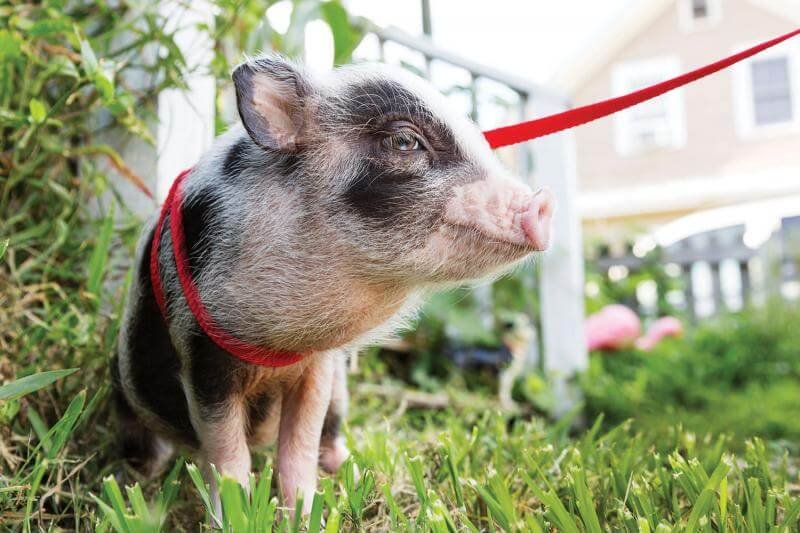Pork is now the most widely eaten meat in the world. At the same time, owing to the creation of novel, smaller breeds and the publication of studies attesting to their remarkable intelligence, pigs are increasingly living with people as pets.
Amidst this backdrop, animal behaviorists from Eötvös Loránd University in Budapest, Hungary launched the Family Pig Project (FPP) in 2017, with the aim of raising pigs in a similar environment as family dogs so the two species can be properly compared in experimental research.
In a recent study published to the journal Scientific Reports, scientists Paula Pérez Fraga, Linda Gerencsér, and Attila Andics brought similarly-raised, four-month-old piglets and puppies into the lab to investigate how they interact with their human caregivers. As the researchers described:
“We presented the [animal] subjects with a preference test, in which the owner was either paired with an unfamiliar person or with a familiar object. We measured the approach and proximity seeking of both piglets and dog puppies. We hypothesized that family pigs would exhibit preference for their caregiver similarly as family dogs do.”
The authors were broadly correct in their hypothesis.
“Pigs needed more physical contact,” researcher Paula Pérez Fraga described. “They touched the owner with the snout, in a similar manner as they do with conspecifics, and they climbed to the owner’s lap.”
Read the original post































